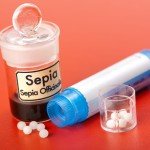Prenatal Advice: Both Moms and Dads Should Avoid Alcohol Consumption Six-Months Prior to Conception
Node Smith, ND
Aspiring parents should both avoid drinking alcohol prior to conception to protect against congenital heart defects, according to research published in the European Journal of Preventive Cardiology, a journal of the European Society of Cardiology (ESC).
Hopeful parents-to-be should both avoid drinking alcohol prior to conception
Drinking alcohol three months before pregnancy or during the first trimester was associated with a 44% raised risk of congenital heart disease for fathers and 16% for mothers, compared to not drinking. Binge drinking, defined as five or more drinks per sitting, was related to a 52% higher likelihood of these birth defects for men and 16% for women.
‘Binge drinking’ is a high risk and dangerous behavior
‘Binge drinking’ by would-be parents is a high risk and dangerous behavior that not only may increase the chance of their baby being born with a heart defect, but also greatly damages their own health,’ said study author Dr Jiabi Qin, of Xiangya School of Public Health, Central South University, Changsha, China.
Results suggest the following
Dr Qin said the results suggest that when couples are trying for a baby, men should not consume alcohol for at least six months before fertilization while women should stop alcohol one year before and avoid it while pregnant.
Congenital heart diseases are the most common birth defects
Congenital heart diseases are the most common birth defects, with approximately 1.35 million babies affected every year. These conditions can increase the likelihood of cardiovascular disease later life, even after surgical treatment, and are the main cause of perinatal death. Alcohol is a known teratogen and has been connected with fetal alcohol spectrum disorder (FASD). Around one in four children with FASD have congenital heart disease, indicating that alcohol might also be implicated in these disorders.
First meta-analysis to examine the role of paternal alcohol drinking
Previous studies investigating the link between alcohol and congenital heart disease have focused on prospective mothers, with inconclusive results. This is the first meta-analysis to examine the role of paternal alcohol drinking.
The researchers compiled the best data published between 1991 and 2019, which amounted to 55 studies including 41,747 babies with congenital heart disease and 297,587 without. The analysis showed a nonlinear dose-response relationship between parental alcohol drinking and congenital heart diseases.
Dr Qin said: ‘We observed a gradually rising risk of congenital heart diseases as parental alcohol consumption increased. The relationship was not statistically significant at the lower quantities.’
Study’s findings regarding specific defects
Regarding specific defects, the study found that compared to abstinence, maternal drinking was correlated to a 20% greater risk of tetralogy of Fallot, a combination of four abnormalities in the heart’s structure.
Observational study does not prove a causal effect
The authors noted that this was an observational study and does not prove a causal effect, nor does it prove that paternal drinking is more harmful to the fetal heart than maternal drinking. The data cannot be used to define a cut-off of alcohol consumption that might be considered safe.
Dr Qin said: ‘The underlying mechanisms connecting parental alcohol and congenital heart diseases are uncertain and warrant further research. Although our analysis has limitations — for example the type of alcohol was not recorded — it does indicate that men and women planning a family should give up alcohol.’
Source:
- Senmao Zhang, Lesan Wang, Tubao Yang, Lizhang Chen, Lijuan Zhao, Tingting Wang, Letao Chen, Ziwei Ye, Zan Zheng, Jiabi Qin. Parental alcohol consumption and the risk of congenital heart diseases in offspring: An updated systematic review and meta-analysis. European Journal of Preventive Cardiology, 2019; 204748731987453 DOI: 10.1177/2047487319874530
 Node Smith, ND, is a naturopathic physician in Humboldt, Saskatchewan and associate editor and continuing education director for NDNR. His mission is serving relationships that support the process of transformation, and that ultimately lead to healthier people, businesses and communities. His primary therapeutic tools include counselling, homeopathy, diet and the use of cold water combined with exercise. Node considers health to be a reflection of the relationships a person or a business has with themselves, with God and with those around them. In order to cure disease and to heal, these relationships must be specifically considered. Node has worked intimately with many groups and organizations within the naturopathic profession, and helped found the non-profit, Association for Naturopathic Revitalization (ANR), which works to promote and facilitate experiential education in vitalism.
Node Smith, ND, is a naturopathic physician in Humboldt, Saskatchewan and associate editor and continuing education director for NDNR. His mission is serving relationships that support the process of transformation, and that ultimately lead to healthier people, businesses and communities. His primary therapeutic tools include counselling, homeopathy, diet and the use of cold water combined with exercise. Node considers health to be a reflection of the relationships a person or a business has with themselves, with God and with those around them. In order to cure disease and to heal, these relationships must be specifically considered. Node has worked intimately with many groups and organizations within the naturopathic profession, and helped found the non-profit, Association for Naturopathic Revitalization (ANR), which works to promote and facilitate experiential education in vitalism.









